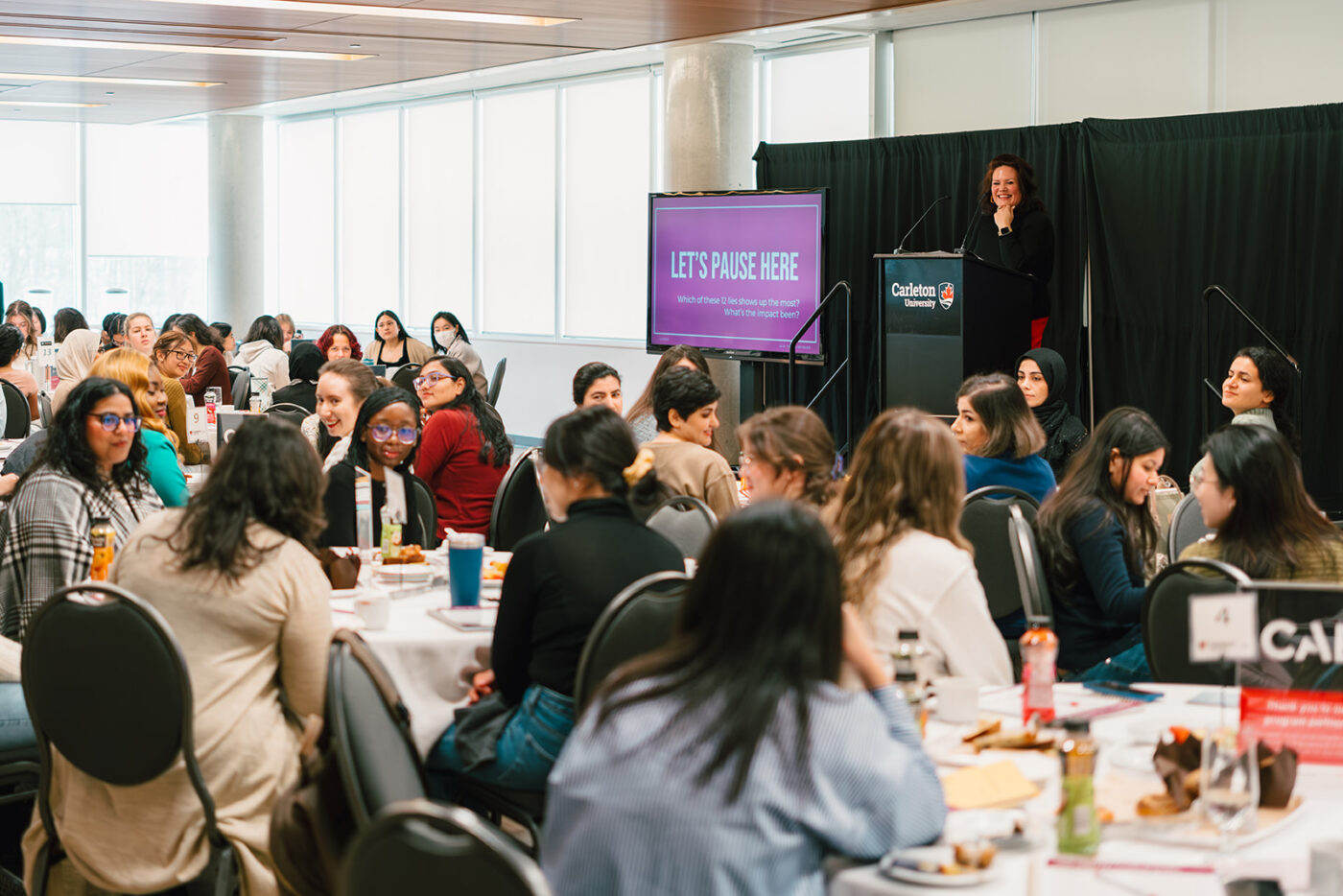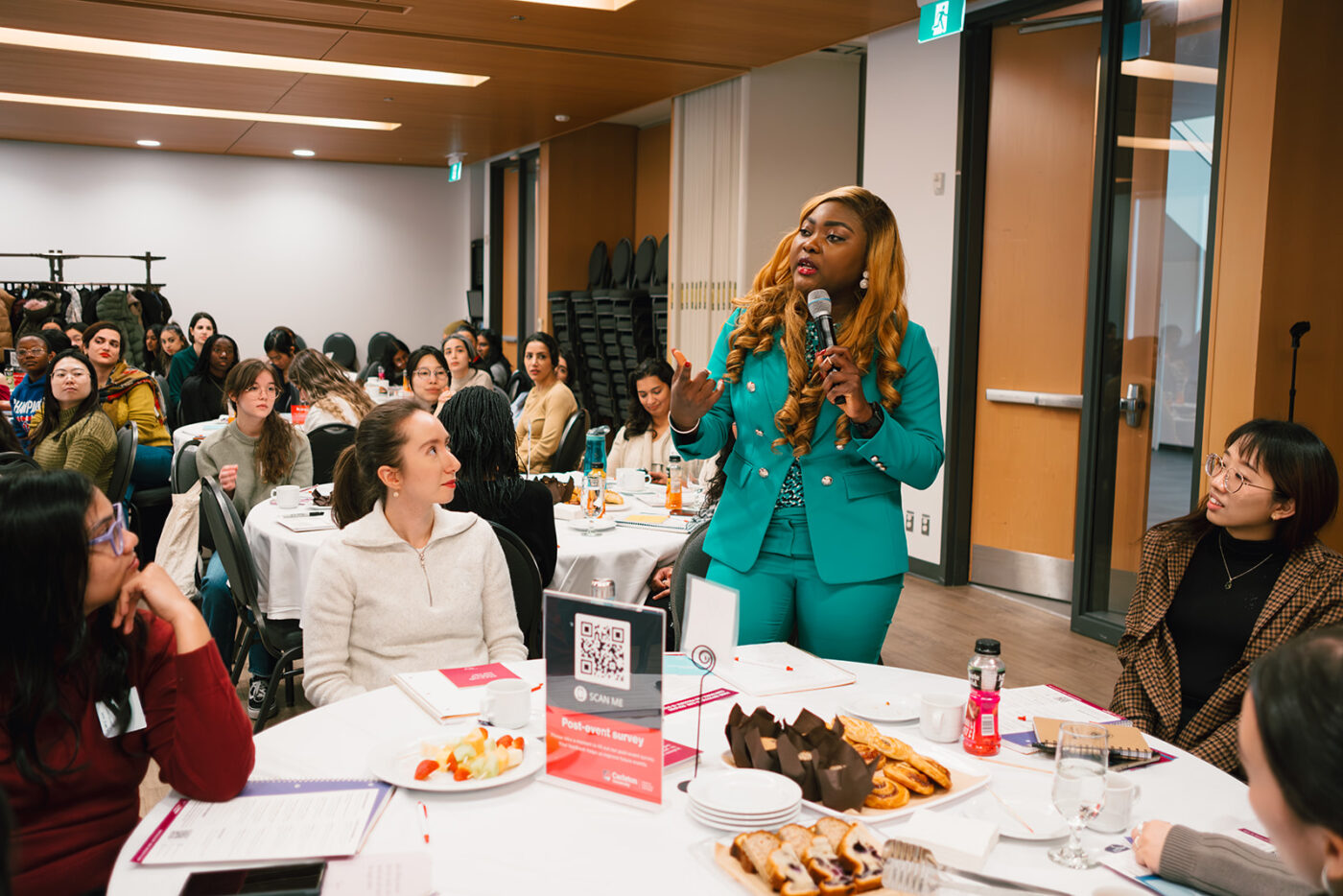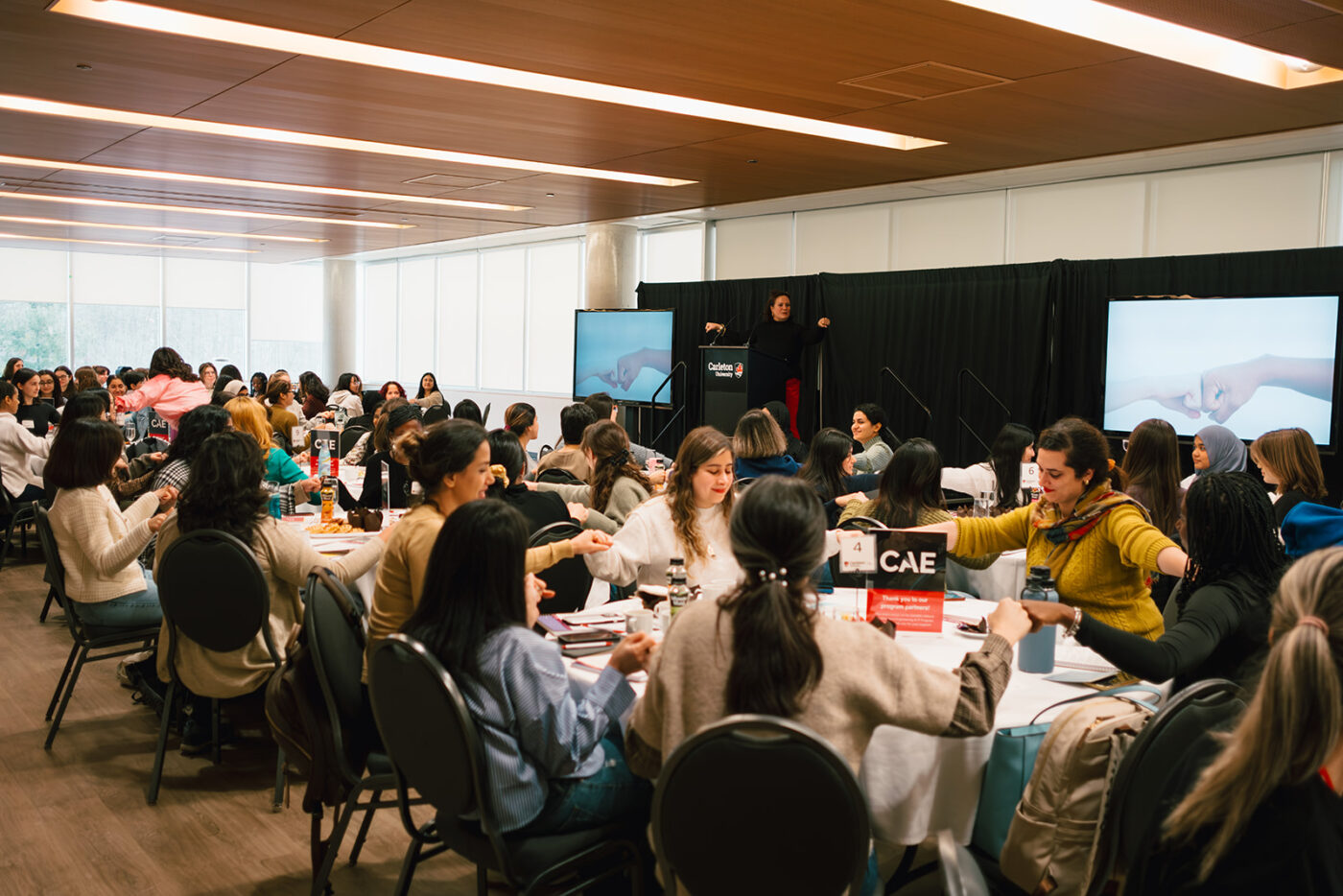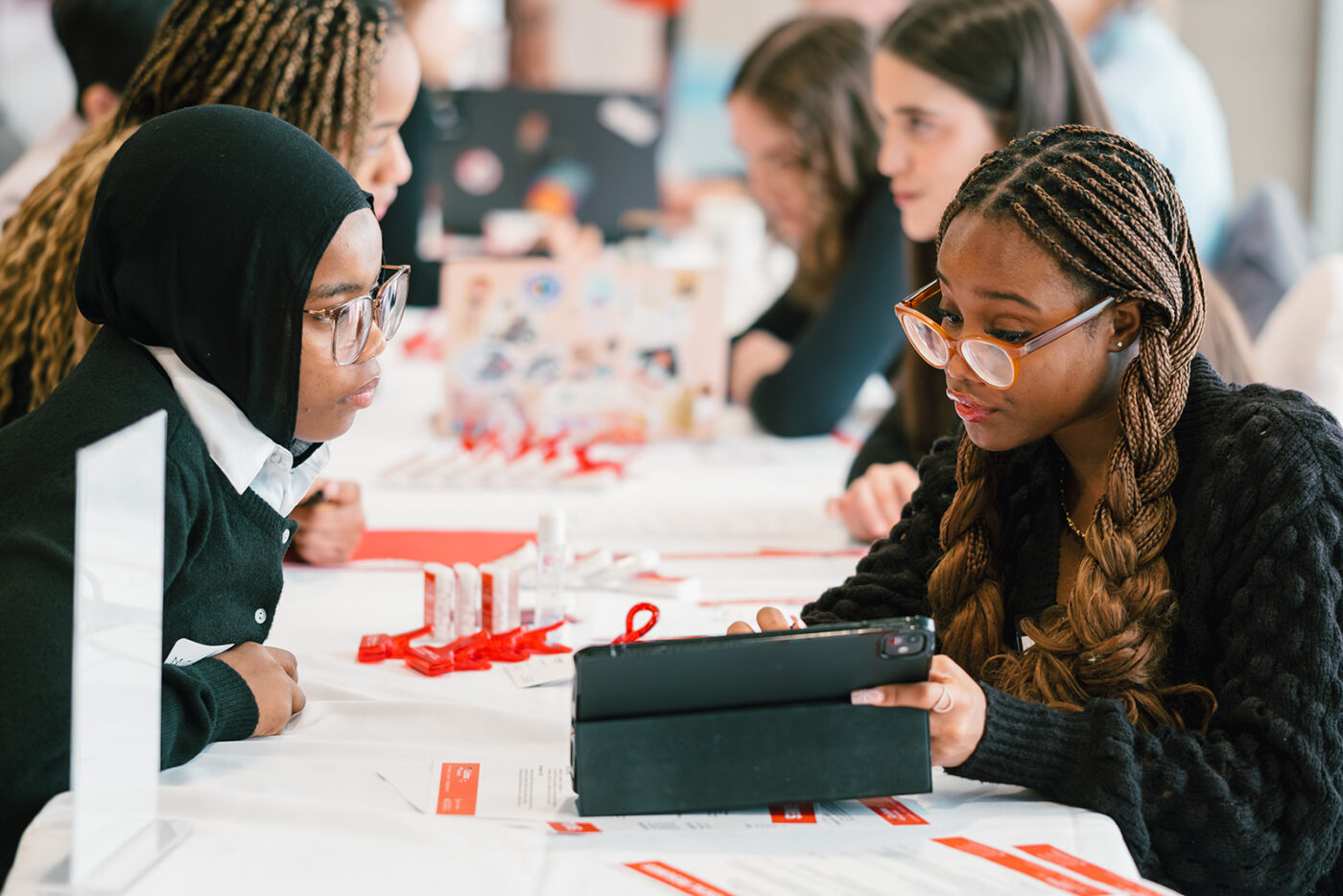Harnessing the Imposter Complex: Helping Women in STEM to Thrive
Joseph Mathieu
Melanie Mathieu
If you can name it, you can tame it.
This was the theme of the Faculty of Engineering and Design’s Workshop Day, where over 100 women students in engineering and information technology gathered on Saturday, Jan. 18.
The morning keynote dove deep into the most requested topic of discussion by women students: feeling like an imposter. Toronto-based Tanya Geisler—a successful leadership coach, writer, teacher and podcast host—introduced herself as no stranger to the feeling.
“I am a reluctant expert on the imposter complex,” said Geisler. “No matter how well I did in different areas of my life, I would often chalk it up to luck, fluke, timing, or having somehow managed to convince people that I was smarter, more capable than I actually was.”
Over a 20-year coaching career, she’s seen it affect people across all sectors and genders. Geisler gave a TEDx talk on the subject in 2012, in which she noted that “every high-achieving person, at one point or another, has wrestled with the imposter complex.”

In 1978, clinical psychologists Pauline Clance and Suzanne Imes coined the term “impostor phenomenon” that they had studied in high-functioning women, from excellent students to respected professionals. Each one seemed stuck in a similar way: all their successes were due to outside factors and all their failures were due to their own faults.
Data is still insufficient, said Geisler, because studies skew North American and English. The development of the concept largely excluded the effects of systemic racism, classicism, xenophobia and other biases.
“But who experiences imposter complex the most? It disproportionately affects those in underrepresented, systemically excluded or marginalized groups,” she said.
Workshop Day was created to give women students—including racialized women, women with disabilities, and Indigenous women—a chance to practice soft skills and polish their resumes. It’s hosted by Carleton’s Women in Engineering & IT (WiE&IT) Program and thanks to industry partners CAE and Gastops.

Gastops mechanical designer Anjola Olufowobi said that she benefited from the support of senior engineers through Carleton’s WIE&IT program when she was a student.
“Supporting young women in STEM empowers and cultivates in them a sense of belonging and confidence,” she said. “This ultimately drives innovation and inclusivity in the field.”
“Our hope for young women and girls interested in STEM is that these initiatives help them see these fields as welcoming and full of opportunities,” said Audrey Falcucci, CAE Manager – Collaboration with Innovation Ecosystems. “By supporting programs like these, CAE reaffirms its commitment to building a workforce that mirrors the diversity of our global community, ultimately resulting in superior products and solutions.”
Heavy Expectations
Engineering and IT students are expected to balance demanding course loads, deliver accurate results and perfect assignments, and compete for internships and co-op opportunities.
Expectations on students who identify as women are even higher: they must overcome biases and challenge stereotypes in a male-dominated field. There are the social, cultural and parental expectations—not to mention the pressures that young women put on themselves.
But in Geisler’s expert opinion, feeling negative feelings toward oneself is actually a good sign. The imposter complex only visits those who highly value proficiency, excellence and integrity.

“You experience it because you have those values,” she said. “Self-doubt is proof of your humanity, not your inadequacy.”
Geisler described how behaviours like perfectionism, procrastination, people-pleasing, and even leaky boundaries can be strengths. Simply put, they show that a person really cares. More boldly, Geisler asked her audience, “what if these traits are your leadership edge?”
Are you a people pleaser? That means you want everyone to feel included. If you always compare yourself to others, you are good at connecting the dots.
And for all the perfectionists out there? They value excellence above all.
From Complex to Leadership Edge
Turning the concept on its head, Geisler encouraged her audience to think of it as the “trailblazer’s complex.”
“If you see yourself as a trailblazer, that you’re moving from problem to possibility,” she said. “And isn’t that why you’re in engineering in the first place?”

Most participants at Workshop Day’s tables reported a variety of these behaviours.
“I feel like I’m just holding it together,” said one. “Like someone else must know what’s going on.”
“I’m actually doing terrible at this,” one thought during a co-op. “They’re just being nice to me until I leave…”
“One insight I’m leaving with today is the fact that I’m not alone,” said Abibat Oki, an Applied Business Analytics graduate student in the Technology Innovation Management program. Oki decided to join Workshop Day to hear from others about mutual challenges and to learn how to overcome them.

“Coming to Canada from Nigeria has really exposed me to things that I never knew I could do, and I’ve been able to work on some inherent weaknesses,” she said. “But now that they’ve been explained to us actually as strengths, I realize I need to make the best use of them.”
Geisler’s workshop provided a framework to exist a negative line of thinking, and to count their wins. Not because of “flukes” or dumb luck, but because of hard, persistent work.
“‘You’re not ready,’ is the number one lie that imposter complex tells. But no one was ever fully ready for anything they accomplished,” said Geisler. “The party is on the other side of your resistance.”